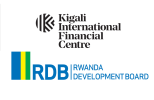Risks to Consider in Real Estate Investment
The allure of real estate investment in Nigeria is undeniable. The potential for high returns is attractive to many investors.
However, like any investment, it comes with its own set of risks. These risks can significantly impact the success of your investment.
In this article, we delve into the various risks associated with real estate investment in Nigeria. We aim to provide a comprehensive understanding of these challenges.
From legal risks to economic stability, we cover a wide range of considerations. Our goal is to equip you with the knowledge to make informed decisions.
Whether you’re a seasoned investor or a novice, this article will provide valuable insights. Let’s navigate the complex landscape of Nigerian real estate investment together.
Understanding the Nigerian Real Estate Market
The Nigerian real estate market is a dynamic and rapidly evolving sector. It offers a myriad of opportunities for investors seeking high returns.
However, to successfully navigate this market, a deep understanding is crucial. It’s important to grasp the unique characteristics and trends that shape this market.
One key trend is urbanization. Rapid urbanization in Nigeria has led to increased demand for real estate, particularly in cities like Lagos and Abuja. This presents a significant opportunity for investors.
However, it’s not without its challenges. Issues such as unclear land ownership and inadequate infrastructure can pose risks. Understanding these factors is key to making informed investment decisions.
Economic Stability and Real Estate Investment
Economic stability plays a significant role in real estate investment in Nigeria. It directly impacts the viability and profitability of investments.
In periods of economic growth, the real estate market often thrives. Increased purchasing power leads to higher demand for property. This can result in appreciating property values and rental rates.
However, during economic downturns, the market can be adversely affected. Reduced purchasing power may lead to lower demand and falling property values. Therefore, understanding the economic climate is crucial for successful real estate investment in Nigeria.
Legal Risks and Property Rights in Nigeria
Legal risks are a significant concern in real estate investment in Nigeria. Unclear land ownership and property rights can lead to disputes. These disputes can be costly and time-consuming to resolve.
The Nigerian land use act vests land ownership in the state governor. However, customary land rights are also recognized. This dual system can create confusion and potential legal issues for investors.
Therefore, it’s crucial to conduct thorough legal due diligence before investing. Understanding the legal landscape can help mitigate these risks and protect your investment.
The Importance of Due Diligence
Due diligence is a critical step in real estate investment in Nigeria. It involves verifying the legitimacy of the property and the seller. This process helps to uncover any potential issues that could affect the investment.
Investors should verify the property’s title, check for any liens or encumbrances, and confirm the seller’s right to sell. It’s also important to assess the property’s condition and understand the local market conditions.
By conducting thorough due diligence, investors can avoid legal issues, financial losses, and other potential pitfalls. It’s a crucial part of making informed investment decisions and protecting your investment.
Government Regulations and Real Estate
The Nigerian government plays a significant role in the real estate sector. It sets the rules and regulations that govern property transactions, land use, and development. Understanding these regulations is crucial for any investor.
Investors should be aware of any changes in government policies that could affect their investments. This includes zoning laws, building codes, and tax regulations. Staying informed about these regulations can help investors navigate the Nigerian real estate market more effectively.
Infrastructure and Real Estate Development
Infrastructure is a key factor in real estate development. In Nigeria, certain regions may lack adequate infrastructure, posing challenges for property development. This includes access to roads, electricity, water, and other essential services.
However, areas with well-developed infrastructure often attract higher property values. Therefore, investors should consider the state of infrastructure in their chosen location. It’s also worth noting that government initiatives to improve infrastructure can boost property values over time.
Political Instability and Security Concerns
Political instability and security concerns can significantly impact real estate investments. In Nigeria, certain regions may be prone to political unrest or security issues, which can deter potential investors and lower property values.
Investors should therefore consider the political climate and security situation in their chosen location. It’s crucial to stay informed about local news and developments, and to factor these considerations into your investment strategy.
Currency Fluctuations and Investment Value
Currency fluctuations can significantly affect the value of real estate investments. In Nigeria, the value of the Naira can fluctuate due to various economic factors, which can impact the return on investment for foreign investors.
Investors should therefore monitor currency trends and consider the potential impact of currency fluctuations on their investment. It’s also advisable to seek professional advice on managing currency risk in real estate investments.
Fraudulent Activities and Investor Protection
The real estate sector in Nigeria, like in many other countries, is not immune to fraudulent activities. These can range from fake property listings to fraudulent land sales, which can result in significant financial losses for investors.
To protect themselves, investors should conduct thorough due diligence and engage reputable real estate professionals. It’s also crucial to understand the legal processes involved in property transactions in Nigeria to avoid falling victim to fraud.
Location, Location, Location: The Key to Real Estate Investment
In real estate investment, location is a critical factor that can significantly influence the value of a property. In Nigeria, properties in urban areas like Lagos and Abuja often command higher prices due to the high demand.
However, investors should also consider the potential of secondary cities and rural areas. With urbanization and infrastructure development, these areas could offer attractive investment opportunities. It’s essential to conduct thorough market research to identify these opportunities.
The Viability of Real Estate Projects
Assessing the viability of real estate projects is crucial in investment decision-making. This involves evaluating the potential return on investment, the project’s timeline, and the reliability of the developers or builders involved.
Investors should also consider the project’s alignment with market trends and demand. For instance, a residential development in an area with a growing population could be a viable investment. Conversely, a commercial property in an area with low business activity may not yield the expected returns.
Professional Guidance and Local Expertise
Navigating the complexities of the Nigerian real estate market can be challenging, especially for foreign investors. This is where professional guidance and local expertise come into play. Engaging with local real estate professionals can provide valuable insights into the market dynamics and investment opportunities.
Moreover, these professionals can assist in conducting due diligence, understanding local laws and regulations, and managing property transactions. Their expertise can help mitigate risks and ensure that the investment aligns with the investor’s financial goals and risk tolerance.
Urbanization and Its Impact on Real Estate Demand
Urbanization is a significant factor driving real estate demand in Nigeria. As more people move to cities in search of better opportunities, the demand for housing and commercial spaces increases. This trend presents a lucrative opportunity for real estate investors.
However, it’s important to note that urbanization also brings challenges. These include overcrowded cities, strain on infrastructure, and increased competition in the real estate market. Investors need to consider these factors when making investment decisions.
Mitigating Risks with Investment Strategies
Investment strategies play a crucial role in mitigating risks in real estate investment. Diversification, for instance, can help spread risk across different property types and locations. This strategy can help investors weather market fluctuations and reduce potential losses.
Moreover, investors should consider long-term trends in the Nigerian real estate market. Aligning investment strategies with these trends can help mitigate risks associated with short-term market volatility. It’s also important to stay informed about global and local economic indicators that can impact the real estate market.
Conclusion: Making Informed Real Estate Investment Decisions in Nigeria
Investing in the Nigerian real estate market can offer high returns, but it also comes with its share of risks. Understanding these risks and how to mitigate them is crucial for making informed investment decisions. This involves conducting thorough due diligence, understanding local laws and regulations, and staying updated on market trends.
In conclusion, while the Nigerian real estate market presents numerous opportunities, it’s essential for investors to approach it with a well-informed strategy. By considering the risks and employing effective mitigation strategies, investors can navigate the complexities of the market and maximize their returns.













































